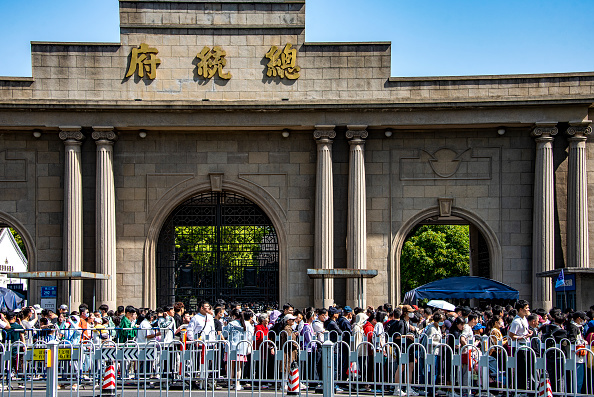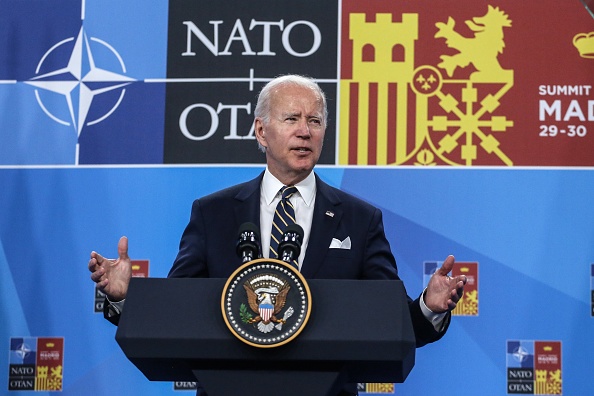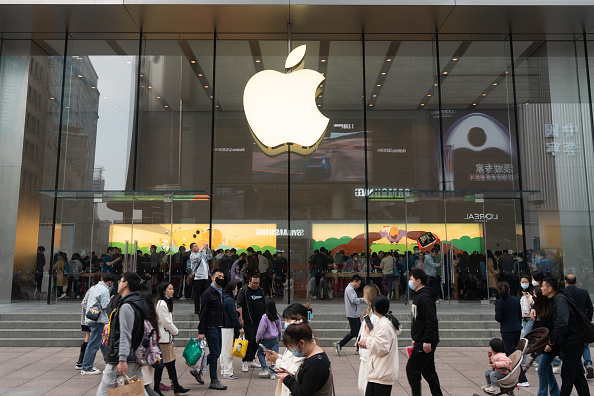
 Golden Week
Golden WeekFollowing the lifting of tight pandemic travel controls, Chinese tourists are once again starting to travel in droves, adding a boost to the country's economic prospects and unleashing the power of China's consumers on the global economy.
During the Labor Day holiday period, also known as "Golden Week," 274 million domestic tourist trips were made, a 71% increase from the same period a year earlier and 19% higher than the same period in the last pre pandemic year of 2019.
The holiday also comes as the World Health Organization officially declared an end to the Covid-19 emergency this week.
Analysts have noted that for the wider economy, the strong increase in travel numbers was a positive sign that China might hit its growth target of around 5% for 2023. Many economists expect the economy to expand at an even faster pace, given that domestic consumers are largely the drivers of economic growth in China.
Travel-related purchases by Chinese consumers using Alipay, a major digital payments app, jumped 70 per cent between April 29 and May 1, the first three days of the five-day national holiday, compared with the same period in 2019.
In a rare example of deepening commercial ties between Washington and Beijing, the U.S. Department of Transportation has issued an order permitting Chinese airlines to increase their number of weekly round-trip flights to 12. That's up from the eight weekly round-trip flights currently allowed for Chinese carriers.
Learn more in "China Opens Again to Tourists," a video feature from The China Current.
 Expanding East
Expanding EastChina's foreign ministry is warning that 'high vigilance' is needed in the face of NATO's 'eastward expansion," following a news report that NATO is planning to open its first liaison office in Asia. Opening next year, the planned new office will be located in Tokyo and will facilitate talks with security partners such as South Korea, Australia and New Zealand.
Beijing has roundly condemned the move, calling it "a battle arena for geopolitics."
"NATO's continual eastward expansion in the Asia-Pacific, interference in regional affairs, attempts to destroy regional peace and stability, and push for bloc confrontation calls for high vigilance from countries in the region," Chinese Foreign Ministry spokesperson Mao Ning told a press conference.
Last year NATO argued that China posed "systemic challenges" to Euro-Atlantic security even though Russia remained "the most significant and direct threat to allies' security." And NATO accused China of carrying out "malicious hybrid and cyber operations" and "remaining opaque about its strategy, intentions and military build-up."
China responded to the NATO assessment by urging the alliance "stop provoking confrontation by drawing ideological lines".
Learn more in "Dilemmas of Deterrence," by Joseph Nye, a professor at Harvard University.
 Espionage Crackdown
Espionage CrackdownChina recently announced that it's going to broaden its anti-espionage law, sparking concerns among foreign companies, journalists, and academics operating in the country. The law, which was initially implemented in April 2021, now includes stricter measures to prevent the transfer of information related to national security and broadens the definition of activities considered as spying.
Beijing's recent security clampdown and increased restrictions on access to critical business data have already had an impact on the business community, and have raised worries about intellectual property theft and possible legal issues for foreign individuals and companies, potentially scaring off foreign investors.
Experts say foreign companies operating in China are already under heightened pressure from both the U.S. and Chinese governments, as they must navigate the need for business intelligence to comply with expanding U.S. sanctions while grappling with the risks associated with conducting on-the-ground due diligence.
The U.S.-China Business Council has warned of a "riskier environment" in China, advising companies to reassess their operations and strengthen their compliance efforts. China's increased oversight over foreign firms may lead to reduced investment and a potential pullback by some multinational companies.
U.S. Ambassador to China Nicholas Burns expressed concern about China's "punitive actions" against American companies, stating that American companies shouldn't be targeted based on "political and competitive differences" between both countries.
Even though China has asserted that it is open for business and while it remains an attractive market for foreign investors, experts have noted that the concerns and uncertainties associated with operating in China have increased, requiring companies to be cautious and strategic in their decisions.
Learn more in "The Economic Costs of America's Conflict with China," by Stephen Roach, a Senior Fellow at Yale University.
Prepared by China-US Focus editorial teams in Hong Kong and New York, this weekly newsletter offers you snap shots of latest trends and developments emerging from China every week, while adding a dose of historical perspective.
- 2023-04-28 Diplomatic Dance
- 2023-04-21 Constructive and Fair
- 2023-04-14 Shoulder-to-Shoulder
- 2023-04-07 Push and Pull
- 2023-03-31 Tsai in Transit
- 2023-03-24 A Changing World
- 2023-03-17 Peacemaker Xi
- 2023-03-10 Party Time
- 2023-03-03 “An Existential Struggle”
- 2023-02-24 Opposing Worldviews
- 2023-02-17 Ripple Effects
- 2023-02-10 Ballooning Tensions
- 2023-02-03 Hot Air
- 2023-01-27 Spheres of Influence
- 2023-01-20 China's Davos Pitch
- 2023-01-13 Strategic Encounters
- 2023-01-06 Common Challenges
- 2022-12-23
- 2022-12-16 All in On Africa
- 2022-12-09 Seeking Stabilization